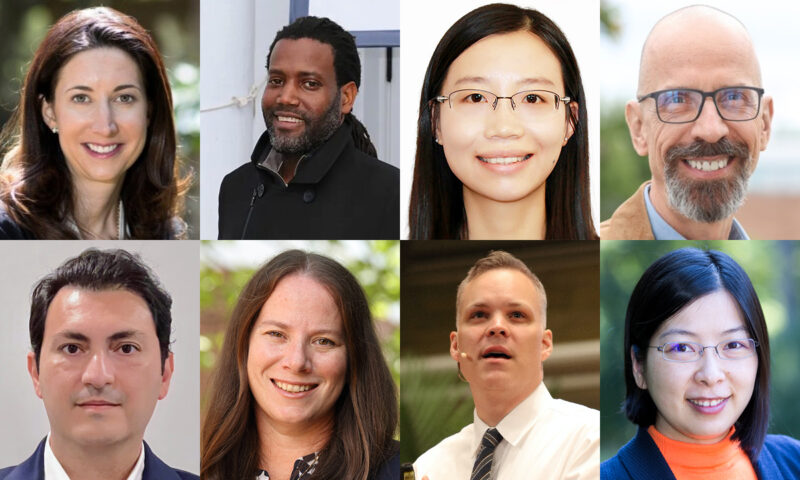Driven to develop artificial intelligence and big data analytics solutions that will help solve the greatest challenges in business and society, McIntire Professor Jingjing Li continues to add to her already impressive contributions to scholarship in the field.
Li, the Andersen Alumni Associate Professor of Commerce and Associate Director of McIntire’s Center for Business Analytics, recently earned an Analytics Resource Award for her project, “Responsible-by-Design: Combating Biases in Generative AI Applications,” from the UVA Data Analytics Center. The University’s hub for assisting researchers across Grounds will provide Li with the essential infrastructure her project requires to securely store and process proprietary and public large-scale datasets.
“This capability is crucial for conducting high-quality, impactful research that requires handling vast amounts of information with precision and efficiency,” she says, explaining that the award will also enable the creation of a robust computing environment benefiting many. “[It benefits] not only my work but also supports the collaborative efforts of my colleagues and the learning experiences of my students. This enhanced computing infrastructure facilitates the development and testing of advanced analytical models and algorithms, enriching the research and educational landscape within our institution.”
Looking forward, she believes that the award will serve as “a springboard for more ambitious projects.” Li notes that the award will help acquire preliminary results that can serve as the foundation for future proposals for larger grants. “These preliminary findings are often a critical component of successful grant applications, demonstrating the feasibility and potential impact of proposed research,” she explains.
Having also received a Jefferson Trust Grant for her AI and large language models project with McIntire’s Professor Reza Mousavi and four members of the UVA’s Department of Psychology, Li is excited about this project due to the urgent need arising to address inherent biases in the quickly developing field and expanding influence of generative AI (GenAI).
“The year 2023 has been a landmark for GenAI, with its economic impact estimated to reach a staggering $4.4 trillion annually, according to McKinsey. This monumental growth underscores GenAI’s transformative potential across industries. Yet, the enthusiasm for its economic promise is tempered by serious ethical concerns,” Li notes. “Studies, such as the one conducted by Bloomberg, have revealed pronounced biases in GenAI outputs, notably in Stable Diffusion’s image generation, which predominantly depicts CEOs as white males and disproportionately associates women with lower-paid roles. This dichotomy between GenAI’s potential and its pitfalls fuels my passion for the project.”
The complex nature of biases within machine learning and AI systems provides a particularly challenging aspect of her project, as Li explains that the current body of research is fragmented, fixed on isolated bias types. “The prevailing body of research overlooks the complex, interconnected ways in which multiple biases can combine to produce significant, often unintended, outcomes,” says Li. “This issue is compounded by the lack of a clear, universally accepted definition of what constitutes bias, fairness, and ethics in the context of AI. Such ambiguity extends beyond mere technical dilemmas, entwining with broader societal and ethical concerns that cannot be resolved through technological solutions alone.”
Through the Analytics Resource Award, Li intends to implement a comprehensive, interdisciplinary approach to address the challenge: “It necessitates a deep dive into various problem domains, encompassing not just the technical underpinnings of AI and machine learning but also the human behaviors and psychological patterns that influence, and are influenced by, these technologies.”



